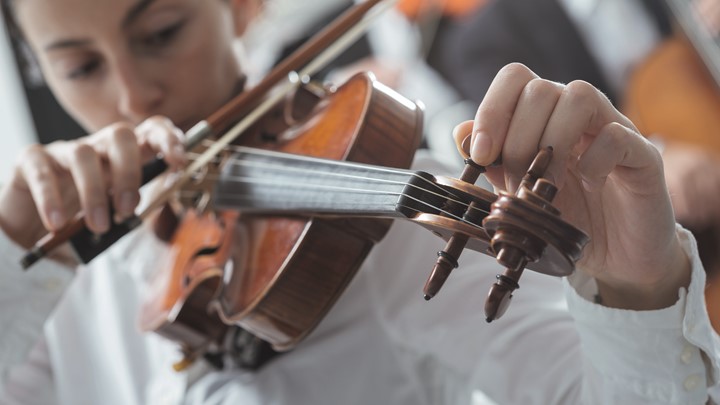Absolute pitch
Recognize every tone, name every tone
This is how we hear
Johann Sebastian Bach had it. And so did Ludwig van Beethoven: Absolute pitch. Only one in 10,000 adults in Europe and the USA possesses it - although, according to current scientific knowledge, almost everyone has a predisposition to absolute pitch. However, once language development is complete, this ability is usually lost again. However, if a person has learned a so-called tonal language as a mother tongue, the predisposition for absolute pitch is more pronounced. In a tonal language such as Chinese Mandarin, a word can have completely different meanings depending on its pitch, and precise speaking and listening are essential. Asian children thus train their hearing and brain at a very early age - apparently an important prerequisite for the development of absolute pitch.

But what is absolute pitch anyway? A person with this ability can precisely name a single musical tone and classify it in a tonal system. They do not need a reference tone, such as an A produced by a tuning fork.
The reasons for an absolute hearing
In addition to Asian languages such as Mandarin and Cantonese, regional African languages such as Bantu and Swahili are also among the tonal languages. Whether there is also a greater predisposition to absolute pitch in speakers has not yet been investigated.
Other researchers believe that genetic reasons are responsible. They argue that absolute hearing is innate. Therefore, in a non-representative study, people with absolute hearing were found to have an enlarged area in the left hemisphere of the brain. This area, the planum temporale, is responsible for processing sounds.2
Further research results point to a connection between certain chromosomes and absolute hearing.3
An absolute ear is not a condition for musicality
An absolute ear is not a prerequisite for musicians to become exceptional talents. Even among the famous masters of serious music, not everyone had an absolute ear: Glenn Gould and Wolfgang Amadeus Mozart were among them - Robert Schumann and Richard Wagner were not. They all created musical masterpieces.
1 Deutsch D, Henthorn T, Marvin E, Xu H-S: "Absolute pitch among American and Chinese conservatory students: Prevalence differences, and evidence for a speech-related critical period". In: Journal of the Acoustical Society of America 2006. 119 (2): 719–722
2 Keenan JP, Thangaraj V, Halpern AR, Schlaug G: "Absolute pitch and planum temporale". In: Neuroimage. 2001 Dec;14(6):1402-8.
3 Theusch E, Basu A, Gitschier J: "Genome-wide Study of Families with Absolute Pitch Reveals Linkage to 8q24.21 and Locus Heterogeneity". In: Am J Hum Genet. 2009 Jul 10; 85(1): 112–119.
Discover other articles
- Smart Hearing: What intelligent hearing systems do
- The sooner an ENT specialist is consulted, the better
- Comfort to go: KINDvitalo
- Hearing loss and its causes
- Hearing aids while driving
- Optimized design for hearing solutions
- Meniere's disease
- Hearing test: Procedure and result
- Loud alone is not enough:
- Noise protection for the ears